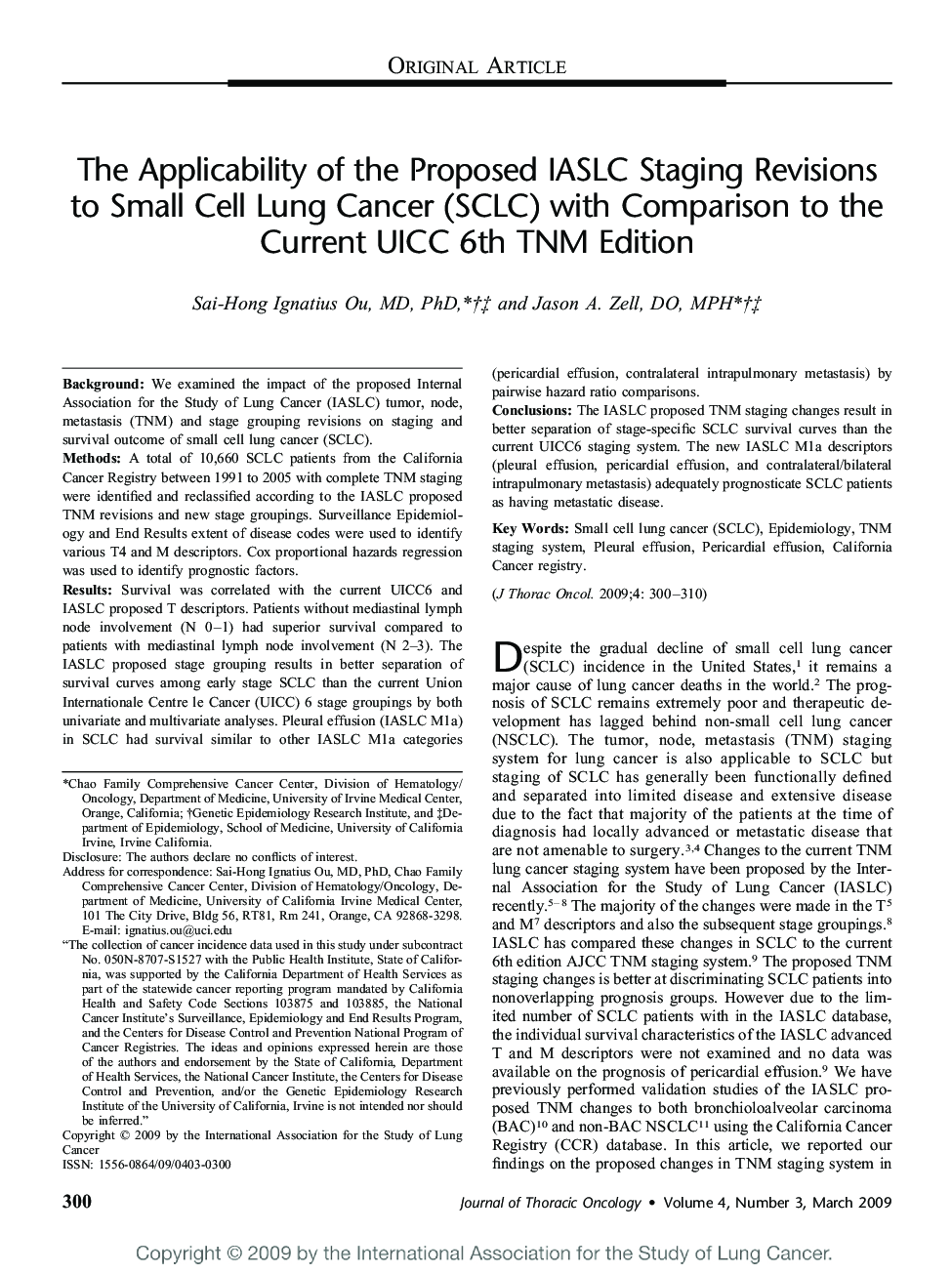| Article ID | Journal | Published Year | Pages | File Type |
|---|---|---|---|---|
| 3991922 | Journal of Thoracic Oncology | 2009 | 11 Pages |
BackgroundWe examined the impact of the proposed Internal Association for the Study of Lung Cancer (IASLC) tumor, node, metastasis (TNM) and stage grouping revisions on staging and survival outcome of small cell lung cancer (SCLC).MethodsA total of 10,660 SCLC patients from the California Cancer Registry between 1991 to 2005 with complete TNM staging were identified and reclassified according to the IASLC proposed TNM revisions and new stage groupings. Surveillance Epidemiology and End Results extent of disease codes were used to identify various T4 and M descriptors. Cox proportional hazards regression was used to identify prognostic factors.ResultsSurvival was correlated with the current UICC6 and IASLC proposed T descriptors. Patients without mediastinal lymph node involvement (N 0–1) had superior survival compared to patients with mediastinal lymph node involvement (N 2–3). The IASLC proposed stage grouping results in better separation of survival curves among early stage SCLC than the current Union Internationale Centre le Cancer (UICC) 6 stage groupings by both univariate and multivariate analyses. Pleural effusion (IASLC M1a) in SCLC had survival similar to other IASLC M1a categories (pericardial effusion, contralateral intrapulmonary metastasis) by pairwise hazard ratio comparisons.ConclusionsThe IASLC proposed TNM staging changes result in better separation of stage-specific SCLC survival curves than the current UICC6 staging system. The new IASLC M1a descriptors (pleural effusion, pericardial effusion, and contralateral/bilateral intrapulmonary metastasis) adequately prognosticate SCLC patients as having metastatic disease.
